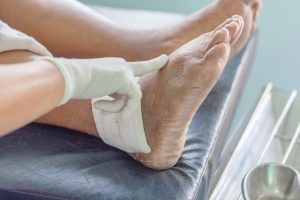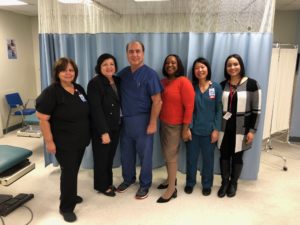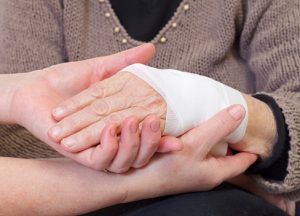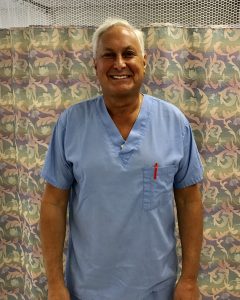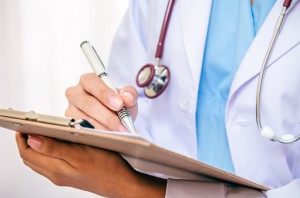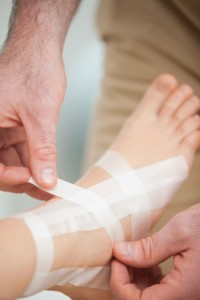Each year, approximately 6 million people will suffer from problem wounds caused by diabetes, circulatory problems, as well as other conditions.
The Wound Care Center at Flushing Hospital Medical Center is a dedicated state-of-the-art, out -patient, clinical wound care service specializing in advancing wound care.
By using a variety of clinically coordinated treatments such as, debridement, medicines, dressings and support services to treat problem wounds, patients are experiencing high rates of wound healing. Studies have shown that wound care treatment reduces the rate of amputations and lengths of stays in hospitals
Timely treatment is extremely important when seeking wound care as a possible remedy. Any patient with a wound that has not started to heal in two weeks, or is not completely healed in six weeks may be a candidate for the Wound Care Center.
Wounds that may indicate a need for wound therapy are:
- Pressure ulcers
- Diabetic ulcers
- Neuropathic ulcers
- Ischemic ulcers
- Venous insufficiency
- Traumatic wounds
- Surgical wounds
- Vasculitis
- Burns
- Peristomal skin irritations
The Wound Care team at Flushing Hospital is a group of physicians, nurses, managers, educators and staff that are specialty-trained in wound management. If you have a wound that is taking a long time to heal and would like to make an appointment, please call 718-670-4542.
All content of this newsletter is intended for general information purposes only and is not intended or implied to be a substitute for professional medical advice, diagnosis or treatment. Please consult a medical professional before adopting any of the suggestions on this page. You must never disregard professional medical advice or delay seeking medical treatment based upon any content of this newsletter. PROMPTLY CONSULT YOUR PHYSICIAN OR CALL 911 IF YOU BELIEVE YOU HAVE A MEDICAL EMERGENCY.

